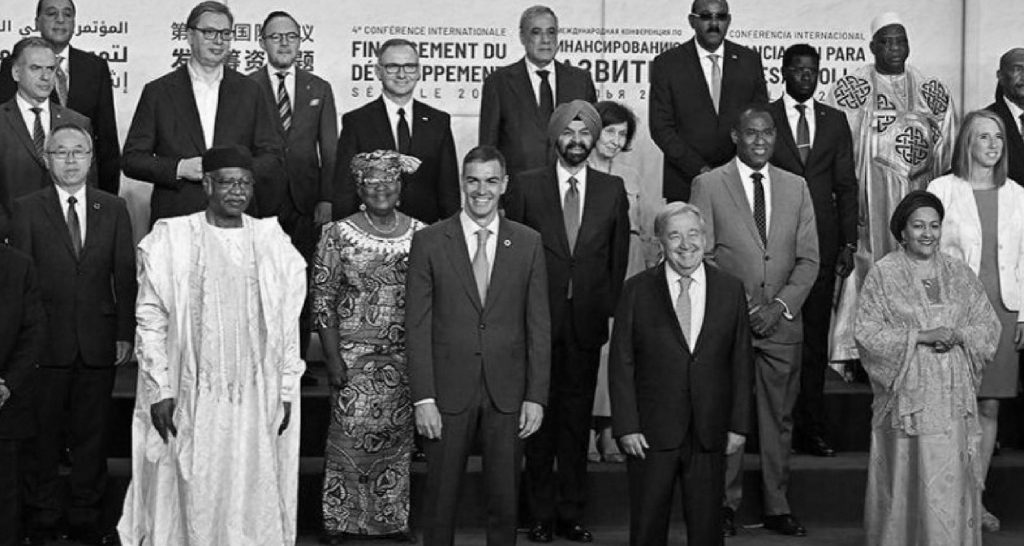Writer: Ahmad Awad

After the conclusion of the Fourth International Conference on Financing for Development (FfD4) in the Spanish city of Sevilla, the features of what this major UN event yielded began to become clearer, which came at a critical moment where countries around the world seek to accelerate the implementation of the 2030 Sustainable Development Plan, address escalating economic crises, and reform the structure of the international financial system.
The conference’s final document, known as the “Sevilla Commitment,” formed a new roadmap in some aspects, but it also revealed the depth of imbalance in the power structure, and the continued “neoliberal” dominance over development directions, which caused widespread disappointment among large sectors of human rights and development civil society organizations worldwide and many Global South countries.
Despite the heavy criticisms directed at the final outcomes of the conference, there are undeniable positive points, which were welcomed by several rights and labor entities.
To read the full article: click here
Disclaimer: Except for articles published on Blog Tadamon and the content of the resource pages, all materials on this website, including their respective photographs, are indexed from their original sources. All rights remain with the respective copyright holders.

Comments are closed, but trackbacks and pingbacks are open.